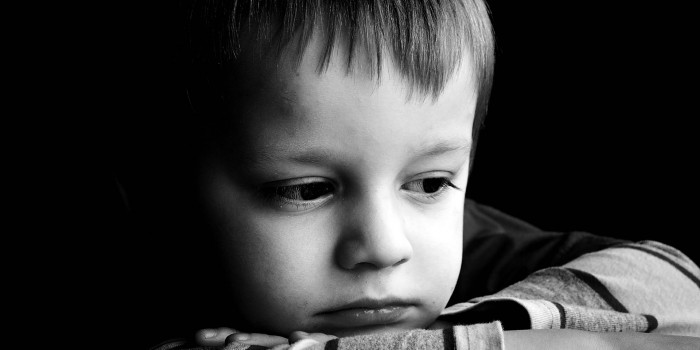Posted on January 31, 2018
Parenting

Share
I have a 7-year-old granddaughter named, Madison. I don’t have many opportunities to spend time with her, as she lives about four states away from me. During some of my brief visits with her through the years, I have become aware of her difficulties with self-soothing as a baby, coping with loud noises as a toddler, and with transition and change as a 2nd grader.
Once, when she was three, we were making a road trip from Minnesota to Iowa that lasted about 5 hours. During that time, her daddy (my son) tried to get her to go potty in the restaurant bathroom. She stalwartly resisted, covering her ears as if she expected any minute for a loud noise to accost her from inside the bathroom. She ended up going the whole five hours without using the potty one time. Needless to say, when we got to my house in Davenport, she really had to go!
Recently, on a trip to her home for her 7th birthday last July, we had the chance to pack up Madison and her then-2-year-old sister, Sadie, along with family friends to an amusement park called “Dutch Wonderland.” It’s a great place, with rides and attractions all tailored to younger children. Stopping at the very first ride we came to, her mom and dad got in line with her and sister in order to ride the junior bumper cars. As Sadie and the other 2-year-old with us jumped on and enjoyed themselves with squeals of joy, Madison melted down into a heap of inconsolable sobbing. It was hot; there were crowds; and we had only been there a few minutes. She was unable to articulate why she was crying. It made no sense to anyone, nor to her. Fortunately, she was able to calm herself enough to enjoy the subsequent rides and, at the end of the trip, I heard her state confidently: “Mommy, I think I’m ready to go on the bumper cars, now.”
The sum of these various experiences has lead me to wonder if Madison has difficulty with self-regulation and sensory processing, and to research the phenomenon more thoroughly. I am happy to share the results of my research with you. Here’s what I learned:
All the above may be a sign of struggles with self-regulation.
The term: “self-regulation” can be easily confused with “self-control.” The two conditions are related but not quite the same. Self-control is primarily a social skill. Our kids use it to keep their behavior, emotions and impulses in check. Self-regulation, on the other hand, is a different sort of skill. It allows kids to manage their emotions, behavior and body movement when they’re faced with a situation that’s tough to handle. And, it allows them to do that while still staying focused and paying attention.
If you’re wondering if kids with ADHD or sensory processing issues (SPD) often struggle with self-regulation, you would be right. How does self-regulation work? You can think of self-regulation in terms of how a thermostat works. A thermostat is set to kick on or off to keep a room at a certain desired temperature – a “set point.” To do that, it needs to keep track of temperature changes, compare them to the set point, and “know” whether to heat or cool the room to get back to the desired temperature.
When it comes to self-regulation, your child also has a “set point.” It’s when she’s able to manage her emotions and behavior in appropriate ways. It all has to do with how she processes information and emotion, and what she’s able to do with them.
A sensory processing disorder (SPD) occurs when kids have trouble handling information that comes in through one or more of their senses. That includes the five traditional senses: sight, smell, hearing, taste and touch. The source of the problem is the body’s nervous system that leads to “sensory overload.” The makes it very difficult for the child to self-regulate. Their emotions and behaviors go unchecked, even when they’re aware of the things that are overwhelming them. For instance, before you go to the store, your child counts her money and realizes she finally has enough to buy the special toy she has been saving for. When you get to the store, she’s already overexcited. Once there, the colors, sounds, displays and crowds of people may overwhelm her, and she has a meltdown, despite the anticipation of having something she really likes and wants.
Trouble with executive function can also cause problems with self-regulation. Kids with ADHD have a hard time managing emotions, so they often overreact to things. They lack impulse control. So, they might say or do things that aren’t appropriate to the situation. Kids with ADHD also struggle with flexible thinking. That means they have trouble shifting gears from one situation to another and coming up with ways to approach it.
All parents do well to keep three things in mind when helping your child develop their self-regulation skills:
Self-regulation skills develop gradually. So, it’s important to know what developmental milestones are appropriate for your child. But you can also help by talking to her about her set point and teach her ways to cope with frustration.
This blog article is excerpted from: https://www.understood.org/en/learning-attention-issues/child-learning-disabilities/sensory-processing-issues/trouble-with-self-regulation-what-you-need-to-know
Kristi Manley, LMHC
Outpatient Individual, Couples, and Family Counselor serving the Quad Cities
More posts about Parenting